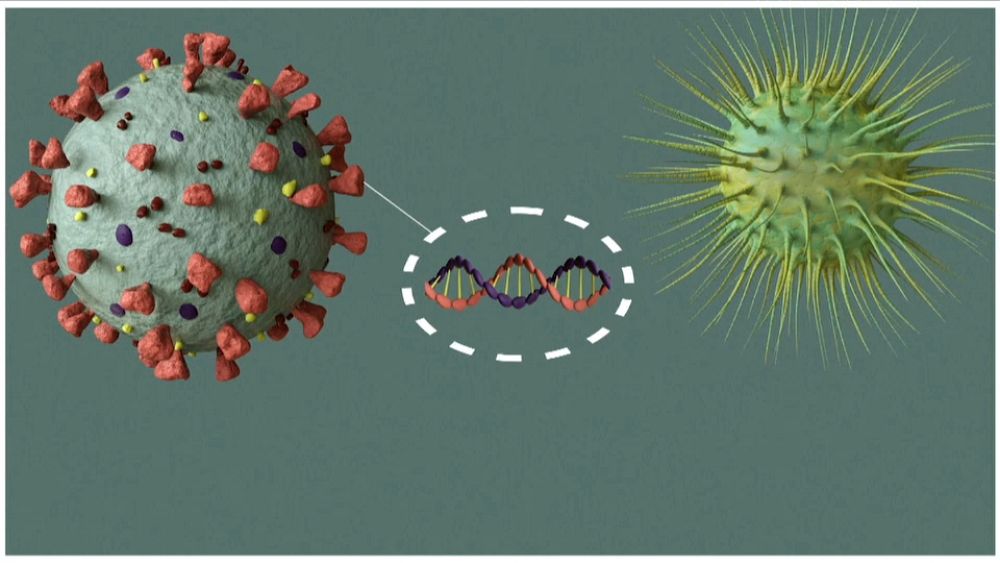Many are concerned that new more transmissible coronavirus variants around the world could complicate efforts to end the pandemic.
But should we be worried that these new mutated forms of the virus will continue emerging?
“At the start of this year, folks like myself were saying that mutation might not be a big problem because this was a rather sluggish virus compared to something like flu and wasn’t known for doing kind of very radical things,” Danny Altmann, a professor of immunology at Imperial College London, told Euronews.
Since the start of the pandemic, there have been some 200,000 different virus sequences reported but now these variants are having an impact on the disease, experts say.
The problem is that there are now so many cases of COVID-19 that “mutants are going to pop up”, Altmann said.
“I do think it’s a finite, limited number and they won’t keep popping up in vast numbers forever and ever,” he added, however.
Countries now need to focus on stopping the spread of the virus and reducing transmission, experts have said.
“The more lungs it’s sitting in and the more people are sitting in, the more it can mutate,” Altmann told Euronews.
Watch the interview in the video player above.
New measures to tackle variants
With concerns rising about new variants globally, the UK is imposing new measures to tackle the virus, including a hotel quarantine for international travellers.
Under the plan, people returning from high risk countries will have to quarantine at approved hotels, and they’ll be billed for their stay.
British and Irish citizens and legal residents coming back from high risk countries with new variants will have to spend 10 nights or 11 days in isolation in selected hotels at a cost of €1100 per person.
Opposition politicians have criticised the time it’s taken to get this plan up and running and that it will only apply to those countries with newly identified variants.









